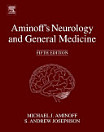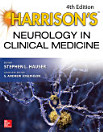Neurohospitalist Medicine
S. Andrew Josephson · W. David Freeman · David J. Likosky
Sep 2011 · Cambridge University Press
Ebook
247
Pages
reportRatings and reviews aren’t verified Learn More
About this ebook
Over the past decade, the hospitalist model has become a dominant system for the delivery of inpatient care. Forces such as national mandates to improve safety and quality, and intense pressure to safely reduce length of hospital stays, are now exerting pressure on neurologists. To meet these challenges, a new neurohospitalist model is emerging. This is the first authoritative text to detail the advances and strategies for treating neurologic disease in a hospital setting. It includes chapters on specific acute neurologic diseases including stroke, epilepsy, neuromuscular disease and traumatic brain injury and also addresses common reasons for neurologic consultation in the hospital including encephalopathy, electrolyte disturbances and neurologic complications of pregnancy. Ethical and structural issues commonly encountered in neurologic inpatients are also addressed. This will be a key resource for any clinician or trainee caring for neurologic patients in the hospital including practising neurologists, internists and trainees across multiple subspecialities.
About the author
S. Andrew Josephson is Associate Professor and Director, Neurohospitalist Program and Medical Director, Inpatient Neurology, Department of Neurology, University of California, San Francisco, USA.
W. David Freeman is the Neurosciences ICU Director and Assistant Professor, Mayo Clinic, Florida, USA.
David J. Likosky is an Attending Neurologist, Evergreen Hospital Medical Center, Kirkland, USA.
Rate this ebook
Tell us what you think.
Reading information
Smartphones and tablets
Install the Google Play Books app for Android and iPad/iPhone. It syncs automatically with your account and allows you to read online or offline wherever you are.
Laptops and computers
You can listen to audiobooks purchased on Google Play using your computer's web browser.
eReaders and other devices
To read on e-ink devices like Kobo eReaders, you'll need to download a file and transfer it to your device. Follow the detailed Help Center instructions to transfer the files to supported eReaders.






